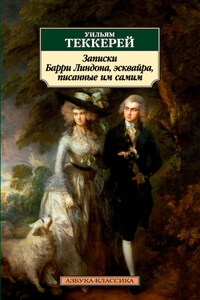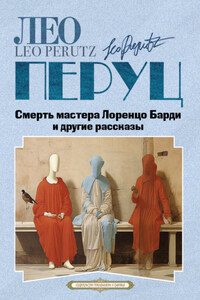'"Roast beef, roast pork, mutton pie, or hash?" Ah, I thought so! When we last met-for we have met three or four times, if I am not mistaken-we were more familiar with those words than good Mrs Barclay's hospitable inquiry. Have you been much around since we sat at that boarding-house mahogany in New York?' The beautiful head was raised, the brilliant face was turned to the speaker, the dark eyes were fixed upon his face, and the girl answered, with good-humoured ease, – 'Yes, I have travelled a good deal since we met at New York last year.' 'Ah, so have I!' said the thin, dark, restless young man opposite her, who had spoken first. The company had been only a few minutes seated at the Sunday dinner of Mrs Barclay's private hotel, situate in Peter's Row, hard by the Cathedral of St Paul's, London. 'I have been,' continued the lank, dark-faced man, speaking with assurance and rapidity, 'all over the States, all over Canada, in Spain and Algiers, since. I am going to India and China; and then I am going-' He paused. She smiled. 'Where?' 'Into a gas retort, to get cremated.' 'How horrible!' cried white-haired Mrs Barclay, from the head of the table. 'How dreadful!' cried the other ladies, four in number. The girl laughed. 'Alive?' she asked. 'Alive, of course! There is no fun in going anywhere when one is dead.' 'Do you speak from experience?' she asked. 'No-observation. Look at all the mutton-headed, numskull, leaden-blooded, dead dolts you find crawling through life everywhere you go, and particularly in England; you don't mean to say they have any fun, do you?' The girl laughed again, a low soft laugh, that fell upon the ear like a message of comfort. 'Pray, sir,' said a solid-looking man at the foot of the table, 'is your knowledge of England so large that you are able to describe the character of the people in such flattering terms?' 'I have been about a good deal in England; altogether a couple of years. But, my dear sir, you are not to judge by time alone; you must take into account the capacity of the observer as well. Now I am very quick at observing.' 'So I perceive,' said the other, at which there was a faint titter. The dark man did not heed the interruption, beyond smiling a good-humoured welcome to the slight repartee, and went on. 'I am a cosmopolite. I belong to the family of man. My native country is the earth; and I have been a good bit over my native country. This is my tenth visit to London. I have been three weeks in London this time.' Looking across the table at the dark-eyed girl, he said, – 'I do think it was a fair specimen of observation that I knew you when you came into the room. You arrived this morning, I believe?' 'I arrived last night.' It seemed she could not speak without smiling. 'Stop. I have a memory for facts as well as for faces. I can recall your name. Taking into account all the people I have met since, I do think it good to be able to recall your name. Your name is Irish-O'Connor.' 'No, Scotch-Gordon.' 'Ah! And your Christian name is Italian-Luigia.' 'No, French-Marie.' There was a general laugh. 'Wonderfully accurate!' said the gentleman at the foot of the table. 'Well,' said the dark man, 'I admit I am not good at names, but I am at facts. Now, I remember that in New York you had a maid.' 'I have her still. She goes everywhere with me. She is Irish. Her name is O'Connor-Judith O'Connor.' 'I knew there was something Irish and O'Connorish about you. She has black hair and dark eyes, and a pert nose and perter manner.' 'Yes; but it would not be prudent for you to say these things about her nose and her manner to herself.' 'I'm not very prudent, but I know that. Let me see if I cannot remember something more of you. You are a kind of specimen woman of humanity.' The broad-chested, good-looking, fair-haired young man sitting beside the speaker involuntarily laid down his spoon in his soup-plate, stole a glance at the traveller by his side, and then a still more quiet glance at the dark-eyed girl opposite. She caught his eyes and turned hers full upon him. He looked down, took up his spoon, and resumed his dinner. 'The more of such specimens the pleasanter the world would be,' said the man at the foot of the table, bending gallantly. 'I did not mean to be complimentary, Miss Gordon. I never do,' protested the traveller. 'In this case, sir, you could not help it.' The fair-haired man looked frankly and freely at the last speaker. When he withdrew his glance, he found the eyes of the girl fixed on him with a smile of protest against the civil speeches of the man at the foot. 'I meant,' said the thin man, 'that you represent many nations. I remember, at least, all about that. Your father was Scotch, your mother a French Canadian; you were born in India, and brought up in Australia. Is not that so?' 'Yes.' 'No fish, thank you. I never eat fish. I was born at sea; and people born at sea never eat fish. I have some reason for remembering these facts connected with you, for I too am a mixum-getherum lot. My father was a pirate, or something of that kind. I am a parishioner of Stepney, a place which has never yet had the honour of seeing me. I have no dread of being moved on to my parish, for I know I shall end my days by being blown from a gun for piratical practices on the high seas. Before that happens, I hope, Miss Gordon, to have the pleasure of meeting you often, for you are as great a cosmopolitan as myself. Do you intend remaining here long?' 'Some months, perhaps.' 'Ah, I had intended clearing out of this hole in a week or so; but what you have told me may alter my mind.' 'That from the gentleman who














